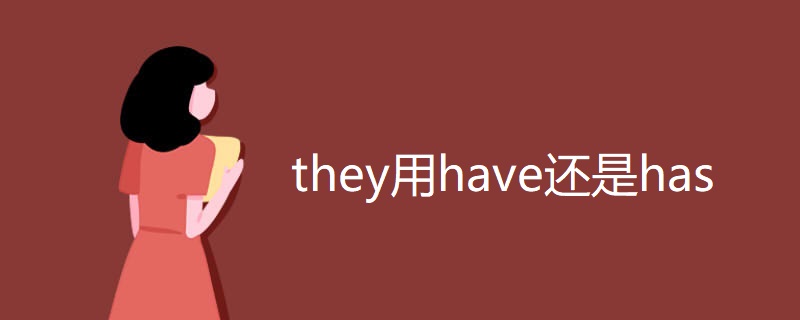-
-
they后面加have。当句子主语是I、We、You、They时,谓语动词用have;当句子主语是第三人称单数时,谓语动词用has;当句子为一般过去时,且主语为they,其后谓语动词应用had。其中have是动词原形,has是单三,had是过去式。

they后面加have、has的情况
1、当句子主语是I、We、You、They时,谓语动词用have;
2、当句子主语是第三人称单数时,谓语动词用has;
3、当句子为一般过去时,且主语为they,其后谓语动词应用had。
例句:I don't have that much money on me. 我身上没带那么多钱。
She enchanted you as she has so many others. 她迷住了你,就像她迷住了其他那么多人一样。
When he returned, she and Simon had already gone 他回来时,她和西蒙已经走了。
have的中文释义及用法介绍
1、当have作“有”讲,强调“所属关系”,含有“拥有”之意。其主语一般是人,有时也可以是物。
2、have还可译为“买”的意思。
3、have还有“用、使用”的意思。
4、have+表示动作的名词,意为做(某事)。
5、have+表示一日三餐的名词,意为“用餐”。
7、have+表示食品、饮料等的名词,意为“吃;喝”。
8、have+表示某种活动的名词,意为“进行;举行”。
9、have+表示疾病的名词,意为“患(病)”。
10、have+表示一段时间的名词,表示“经历;度过”。
造句:
1、If youhavean IQ of at least 115, you can do any job.
如果你智商得分达到115,那你什么工作都能干。
2、Haveyou ever felt like you are about to snap?
你是否曾觉得自己就要垮掉?
3、Wehavemapped these items against the objectives set out in the Medium-term Strategic Plan.
我们对照中期战略性计划中所载明的目标详细筹划了这些项目。
4、If you had not drawn such a long face I should neverhavedoubted.
要不是你哭丧着脸,我还不会怀疑。
5、Ihavesent them a formal invitation.
我已经寄给他们一份正式的邀请函。